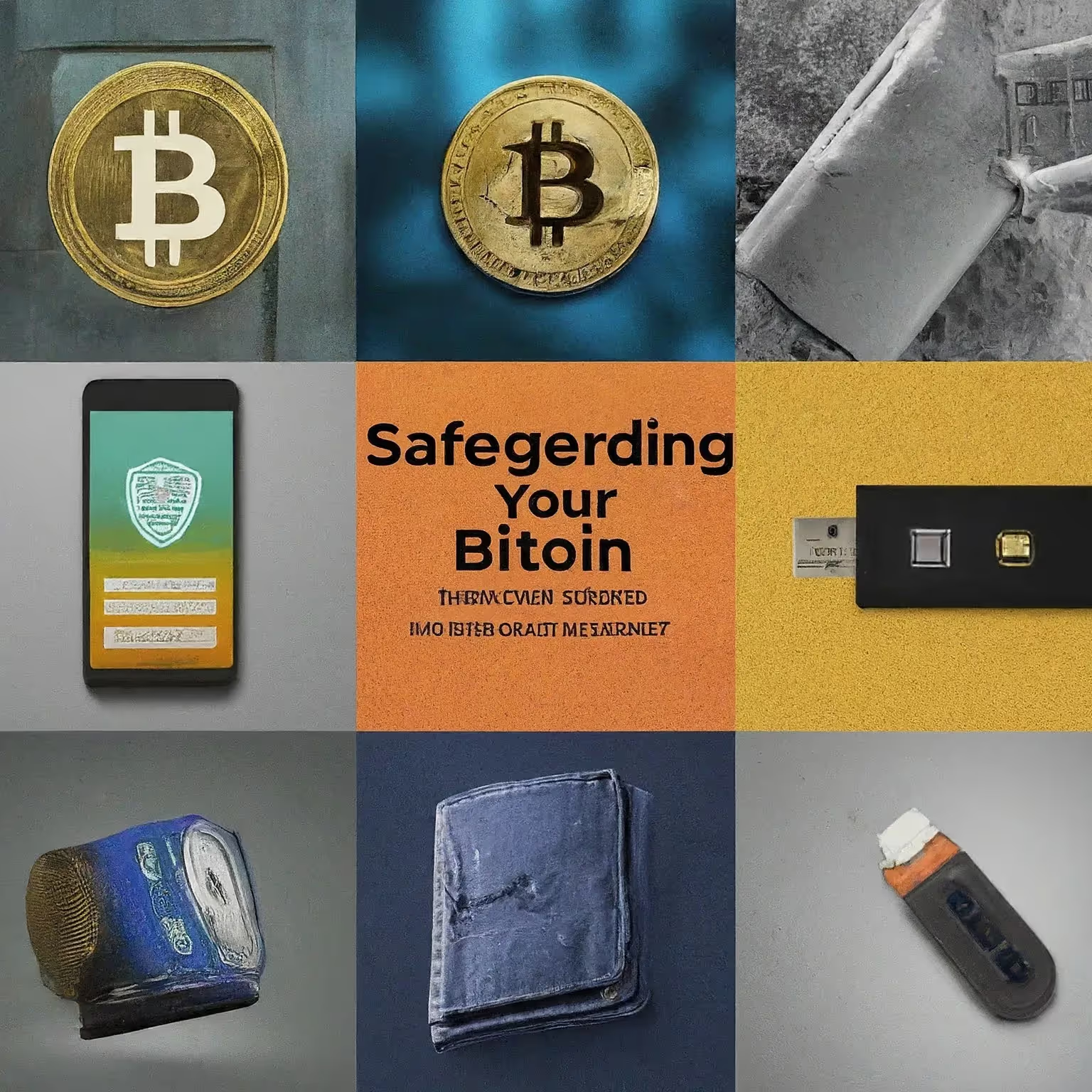Safeguarding Your Bitcoin: Best Practices for Security

In a landscape where Bitcoin is becoming more and more valuable, protecting your digital assets from theft, hacking, and other security risks is increasingly important. Your experience level will go a long way in determining the security precautions you need to take to protect your investment. In this guide, we will talk about securing your Bitcoins and how you can decrease the chances of loss or theft?
Use a Secure Wallet
The very first step is to select a safe Bitcoin wallet where you will store your Bitcoin digital assets. You might also want use a hardware wallet (a Ledger or a Trezor) where you keep your private keys offline and add another layer of protection against online threats. Or stick to a good software wallet with high security features and a reputation for being stable.
Enable Two-Factor Authentication
Make sure you set up 2FA on your Bitcoin wallet and exchange accounts for an additional layer of security. And to put it basically, 2FA requires you to offer one thing on prime of your password – e. g. a one-time validation code sent to your cell phone – whenever you log in or full transactions. Basically, this makes it more possible to keep your accounts safe even if someone does manage to steal your password.
Keep Your Software Up to Date
Keep your Bitcoin wallet software, operating system and antivirus up-to-date with security updates to protect your wallets from malware, viruses and other cyber threats. Whenever an option exists, have automatic updates set up so that you will always be on the most up-to-date software with these security patches applied.
Practice Cold Storage
Your Bitcoin holding on cold storage should be more (cold storage is private keys kept offline and off the Internet). Popular cold storage methods are hardware wallets, paper wallets and offline storage solutions. Taking your Bitcoin offline will mean that your Bitcoin is no longer at risk from theft – the primary danger when your Bitcoin is exposed online, either by hackers, or by malware attacks.
Backup Your Private Keys
Always have backups of your Bitcoin wallet private keys or recovery phrase in a safe, offline location. If your device disappears, gets stolen or just breaks down, you can use your backup to get access to your funds again. Store backups in several secure locations and optionally encrypt them.
Be Wary of Phishing Scams
Be cautious of scams and fake websites which will try to steal your Bitcoin and your personal information. Be very careful with links or files from unknown sources, anything that asks you to click, and always verify the site and the e-mail before entering any sensitive information or making any transactions.
Diversify Your Holdings
Consider diversifying your Bitcoin holdings across multiple wallets and exchanges to spread risk and minimize the impact of potential security breaches. Avoid keeping all your Bitcoin in a single account or wallet, as this increases the risk of loss in the event of a security incident.
Educate Yourself
Learn more about the most recent security threats and how to best protect your Bitcoin. Stay Up to Date With the Latest Attack Vectors (Phishing, Malware, Social Engineering) & Prevent them from Happening as Much as Possible: Using the internet, other online communities and forums that other Bitcoin users are on is a good way to find out about security tips and Bitcoin discussions.
Conclusion
Implementing these Bitcoin security best practices can protect your digital assets, and reduce the likelihood of loss, or theft of their holdings. This is also worth you to remember, the security must be taken good care of and shall be updated time to time, hence do all the necessary things initially to maintain the security of your investments. And because it is best to protect your Bitcoin by implementing the highest security standard, you can also sleep well and take a break.
Disclaimer
“This content is for informational purposes only and does not constitute financial advice. Please do your own research before investing.”






